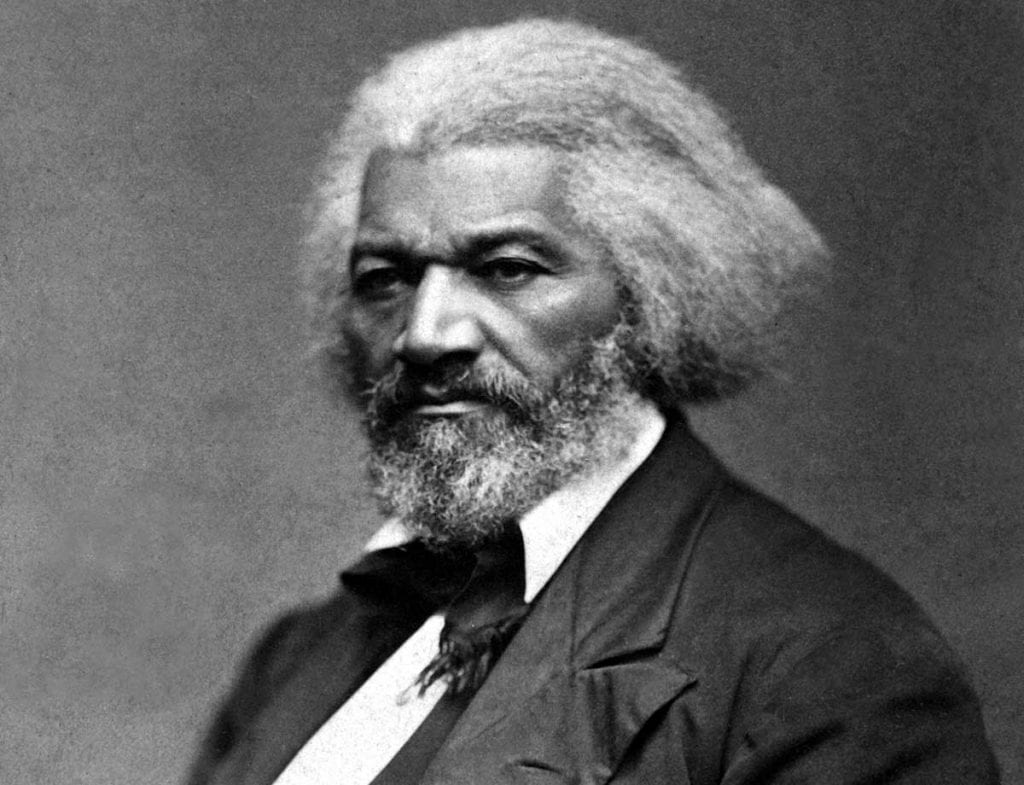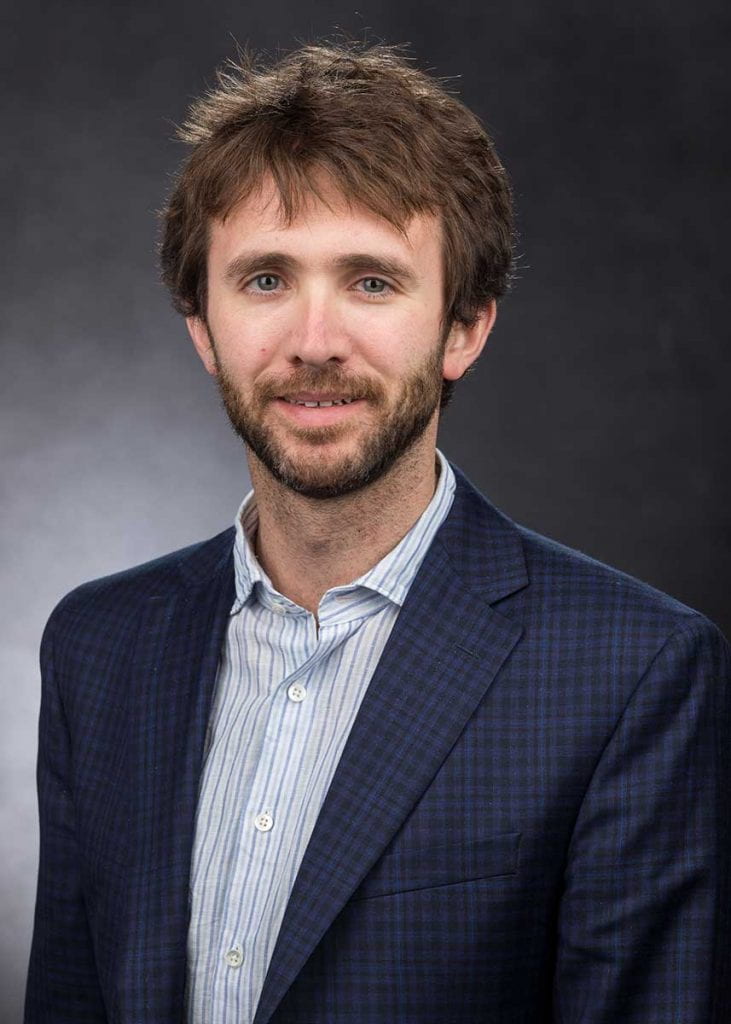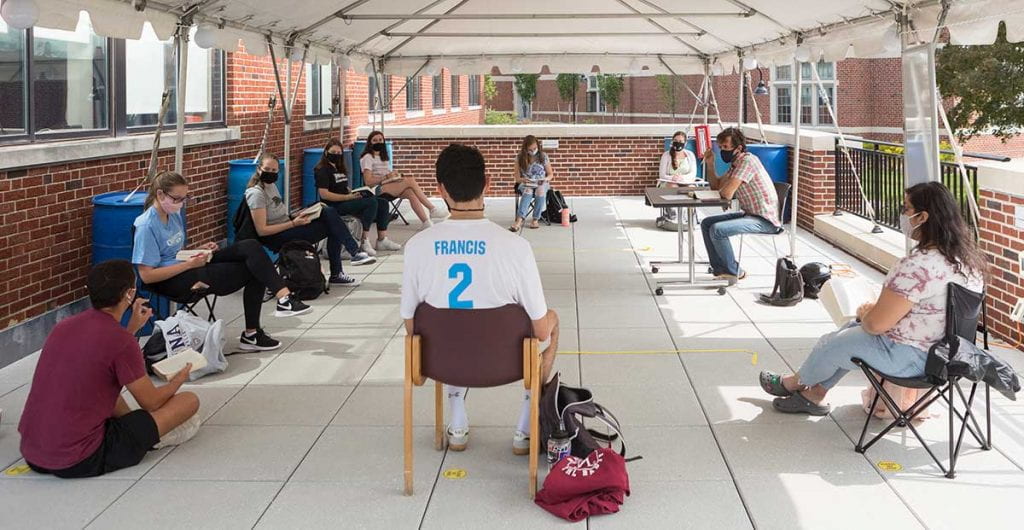March 16, 2021
Students to demonstrate art of persuasion in Frederick Douglass Essay and Public Speaking Contest
By Vicki-Ann Downing
In a time of public discord, it’s difficult to imagine that college students would need help learning how to disagree with one another.
But that’s the premise behind the Frederick Douglass Project, an initiative of Dr. Iain Bernhoft, visiting assistant professor of English. In conjunction with the Humanities Forum at Providence College and with a $10,000 grant from the Jack Miller Center, Bernhoft is inviting students to participate in the Frederick Douglas Essay and Public Speaking Contest and compete for cash prizes.
Students are encouraged to write a persuasive argument addressing an important issue facing the country, the state, Providence, or PC. They may participate in the essay competition, the speaking competition, or both, but they will be judged on how well they engage with and respond to opposing views.
“Students don’t like to disagree with one another. People are reluctant to do something that might be perceived as confrontational,” Bernhoft said. “I am interested in getting students to think more about rhetoric and tactics of persuasion. This is something you need to succeed in any field. But I think the skill is underappreciated by students.”

Bernhoft chose Frederick Douglass, the social reformer, writer, and statesman, as the model for the project. Born into slavery in Maryland, Douglass escaped to the north and became a leading abolitionist in Massachusetts and New York in the years before the Civil War. He was a master orator, and his autobiography and speeches are taught in English classes as part of early American literature.
“Frederick Douglass was one of my main inspirations for the project,” Bernhoft said. “He is such a good writer and speaker. He is someone who combines real, deep moral indignation and righteousness in positive ways, with a fearless capacity to engage people and try to persuade them, even those violently opposed to him and everything he stands for.”
When Douglass was criticized by abolitionists for his willingness to engage with slave holders, he responded, “I would unite with anybody to do right and with nobody to do wrong.”
He is a good example for our time, said Bernhoft, who has taught at PC for three years and is leading a reading group on Douglass at the Providence Atheneum through May. He also co-taught, with Dr. Patrick Breen, associate professor of history, a Humanities Reading Seminar on Douglass last fall. (Breen will offer the one-credit course again in the fall to interested students).
“Tensions are high. There is so much agitation and so little conversation,” Bernhoft said. “This project emphasizes how important it is to listen to other people in our society—to understand why someone holds different views than you. We need to recognize that our political enemies might be motivated by legitimate moral concerns.”
Students may choose to submit an essay of 750-1,000 words, a recorded speech of 3 to 4.5 minutes, or both. The deadline is Friday, April 30. To encourage participation, workshops will be held via Zoom on Friday, April 9, at 4 p.m. and on Wednesday, April 22, at 4:30 p.m. For more information, students may email Bernhoft, ibernhof@providence.edu.
A panel of faculty will judge the entries based on how effectively the students develop a persuasive argument through reasoning and evidence and how thoughtfully they engage with and respond to opposing views. The winners will be announced at the Humanities Forum on Friday, May 7. The first-prize winners for the essay and speech will each receive $400. There will be a $100 prize for the runner-up.
Some participants likely will be the sophomores in the Development of Western Civilization colloquium that Bernhoft is teaching this semester with Jiyoon Im, adjunct instructor in political science. In the course, Persuasion, Judgment, and Rhetoric in Liberal Democracies, students read Aristotle, Thucydides, Shakespeare, Rousseau, Lincoln, and Douglass, and also analyze contemporary political speeches and editorials to see the art of persuasion in action.
Three Humanities Forum lectures this semester also are sponsored by the Frederick Douglass Project. In February, Dr. Glenn Loury, Merton P. Stoltz Professor of the Social Sciences at Brown University, spoke about “Equality of Representation vs. Equality of Respect.” On March 12, Dr. Bryan Garsten, professor of political science and humanities and chair of the humanities program at Yale University, spoke on “Demagoguery and Self-Government.”
On Friday, May 7, Dr. Diana Schaub, professor of political science at Loyola University Maryland, will present “Learning to Love Lincoln: Frederick Douglass’s Journey from Grievance to Gratitude.”







